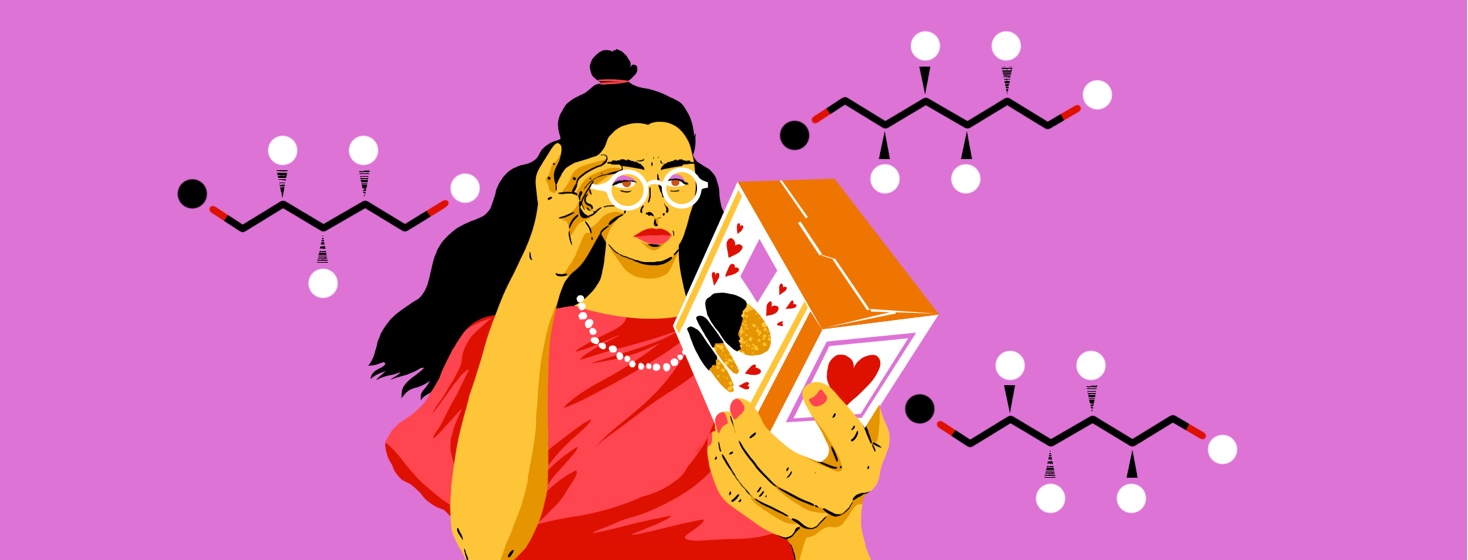A Refresher Course: Eye Health and Sugar
Anyone newly diagnosed with macular degeneration finds out pretty quickly just how much there is to learn about it. There is so much information on what to do (or not do), what to eat (or not eat), what supplements to take (or not take) that it can be overwhelming and even frustrating to know where to begin with research.
I’ve decided to write an article series recapping some of the MD topics that are near and dear to my heart! Hopefully, I can help break things down for anyone who wants basic information about the effects of sugar on our bodies and eyes.
Sweet, sweet Valentine’s Day
'Tis the season for boxes of decadent chocolates in heart-shaped boxes, chocolate-covered strawberries, and maybe even date night wine. Valentine’s Day is quickly approaching and so are the sweet treats that accompany this sweet day. Sugar, sugar, sugar... I’m not here to tell you to not indulge and enjoy your holiday. I write a lot about eating healthy foods to help preserve vision, but I’m also a huge advocate of enjoying life to its fullest.
That means celebrating special occasions!
Types of sugar
Though sugar goes by many aliases there are two main types of sugar, natural and refined. To put it simply, natural sugars are sugars that are from the original source, like fruit. Refined sugars are sugars that have been removed from their original source and turned into sweetener for another food, like candy and bread.
Sugar’s aliases
Sugar is a sneaky little thing and goes by many names. Don’t let these aliases fool you. They all mean SUGAR: Nectar, syrup, honey, sweetener, sugar alcohol (found in many protein bars), brown sugar, cane sugar, white sugar, powdered sugar, dextrose, malt, lactose, fructose, honey, sucrose, molasses, and sorghum.
Be sure to read food labels to know if there’s sugar lurking in what you eat.
Sugar is addicting
Not only is sugar tricky with its aliases, but it’s also addicting. When we eat sugar, dopamine is released into the same areas of our brain that cocaine does. Read that again and let it sink in.
This is why trying to ‘detox’ from sugar is so difficult. It literally alters our minds and bodies, tricking us into thinking we need more. If you’re trying to cut back on your sugar intake, you may feel kind of icky for a few days while detoxing from it. Stick to it! The cravings will subside and eating less sugar gets easier as time goes on.
The science behind sugar and macular degeneration
Dr. Allen Taylor, an instructor for nutrition, ophthalmology, and molecular and chemical biology for Tufts University School of Medicine in Boston, was interviewed by the BrightFocus Foundation in a study indicating a relationship between sugar and macular degeneration. In this study, Dr. Taylor found the following to be true:1
- The intake of sugar is associated with an increased risk for the development of large drusen.
- People who consume a diet that is high in fats and sugar have a greater risk for macular degeneration than those who consume more fruits, vegetables, and fish.
- Excessive intake of sugars has been linked to AMD and other diseases promoted by inflammation, including cancer, heart disease, and arthritis.
- A diet high in sugar can significantly change our gut biome, which has an effect on our overall health. Our gut biome refers to the bacteria, fungi, and viruses living in our gastrointestinal systems. These changes caused by sugar intake can negatively influence diseases like AMD.
Learn more about sugar
Learn more about this study by reading this article titled The Science of Sugar and Macular Degeneration.
Aside from the effects of sugar on macular degeneration, there is so much to know about sugar in general. If you’re wanting more information about how sugar affects macular degeneration, there is a detailed four-part article series about it at Maculardegeneration.net. You can easily search for ‘sugar’ or simply type ‘dietary needs’ using the magnifying glass for our search engine. A long list of published articles will pop up for you to scroll through and read.

Join the conversation